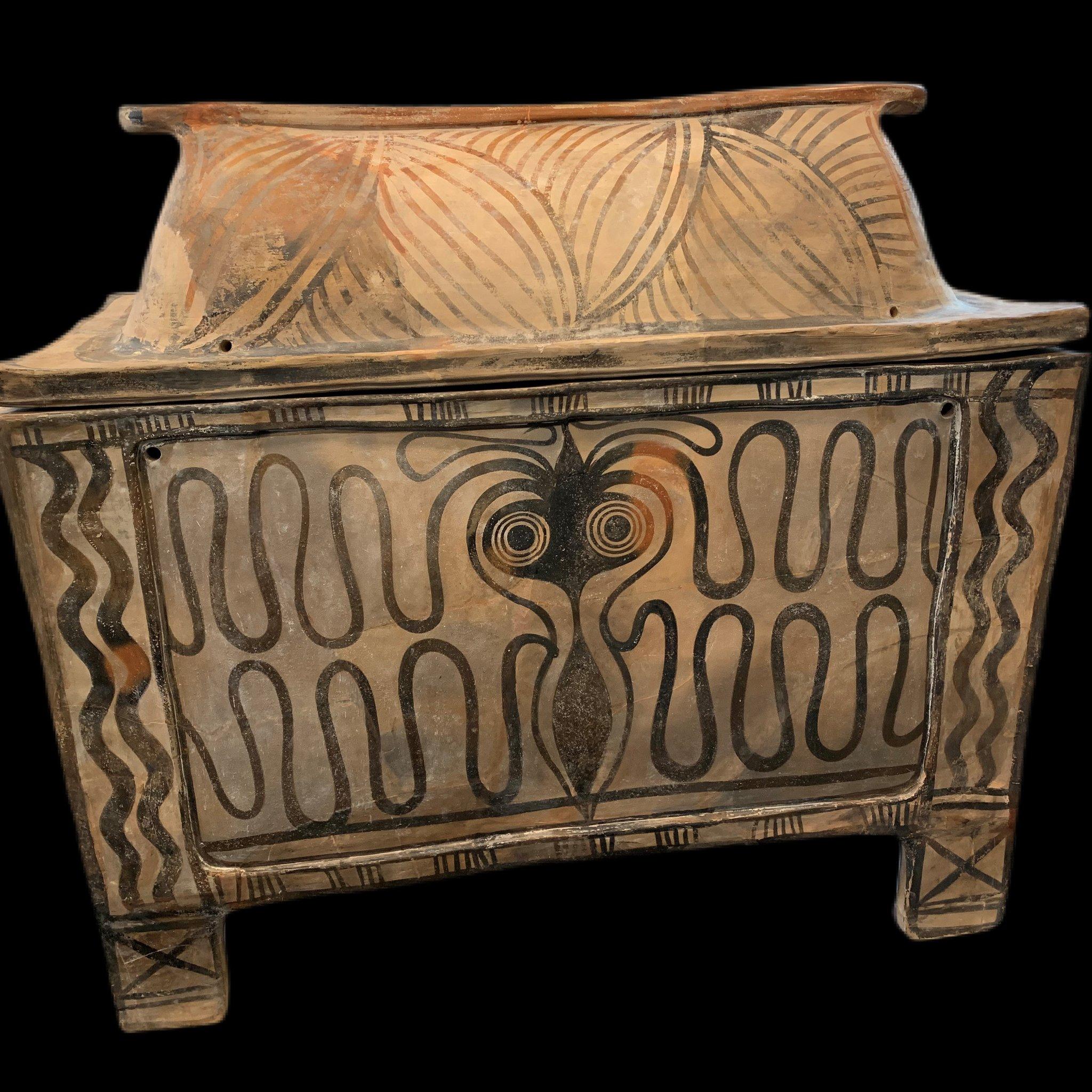Michael Steinhardt: US billionaire hands over antiquities worth $70m
- Published

This rhyton or drinking vessel in the shape of a stag's head is among the items surrendered
A US billionaire has been banned for life from buying antiquities after an investigation found that items he owned had been looted and illegally smuggled.
Michael Steinhardt has surrendered treasures worth $70m (£53m) as part of a deal which means he will not face criminal charges.
The ban on the hedge-fund pioneer acquiring more antiquities was the first of its kind, prosecutors said.
Many of the antiquities appeared to be without provenance, they said.
Mr Steinhardt denies any criminal wrongdoing in the matter; the deal put an end to a grand jury investigation into his affairs.
Among the 180 items he has handed over are the Stag's Head Rhyton, a drinking vessel dating from 400BC worth $3.5m.
The Larnax, a Cretan chest for human remains, has also been surrendered.
The 3,000-year-old item was bought from a known trafficker in 2016, prosecutors allege.
Announcing the surrendering of the antiquities, Manhattan District Attorney Cy Vance Jr said, external Mr Steinhardt "displayed a rapacious appetite for plundered artefacts without concern for the legality of his actions, the legitimacy of the pieces he bought and sold, or the grievous cultural damage he wrought across the globe".
The seized items had been smuggled out of 11 different countries before ending up on the international art market, the district attorney's office found.
Mr Steinhardt's lawyers said he was pleased the investigation had ended and that "items wrongfully taken by others will be returned to their native countries".
They added that the investor might seek compensation from dealers who had misled him as to the provenance of the items he bought.

The Larnax is a small chest for human remains which dates from 1400-1200BC on the Greek island of Crete
